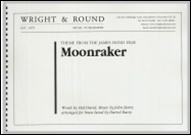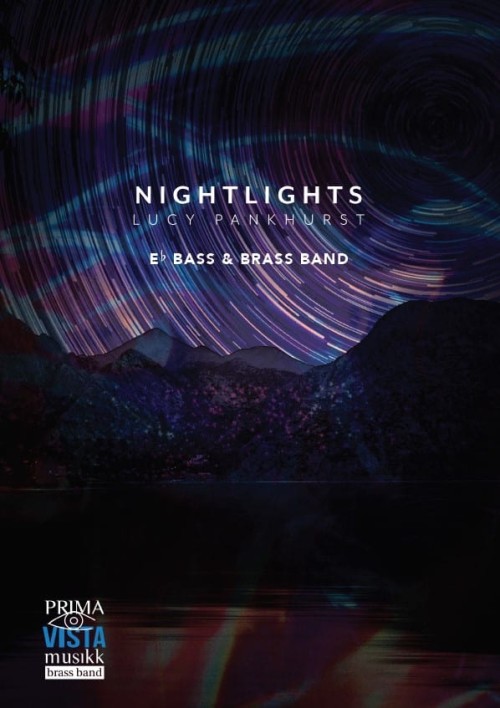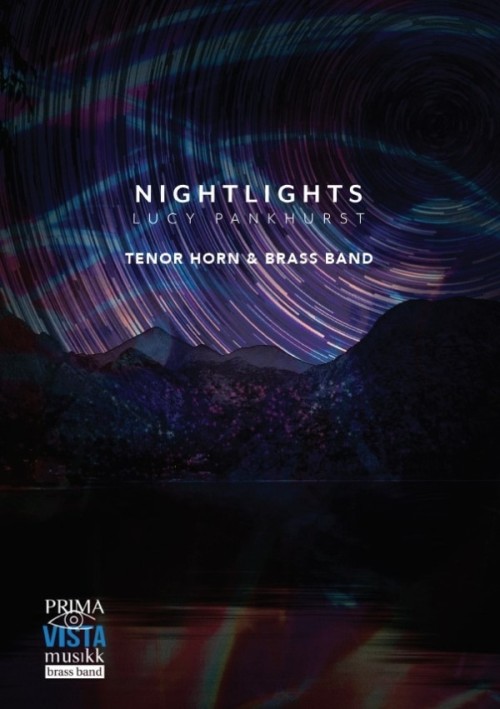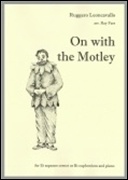Results
-
 £33.00
£33.00MOONRAKER (Brass Band) - Barry, John - Barry, Darrol
Moonraker (1979) was the eleventh spy film in the James Bond series, and the fourth to star Roger Moore as the fictional MI6 agent James Bond. Bond investigates the theft of a space shuttle, leading him to arch-villain Hugo Drax. Bond follows the trail from California to Venice, Rio de Janeiro, the Amazon rainforest, and finally outer space to prevent a plot to wipe out the world population and to re-create humanity with a master race. The magical title song was sung by Shirley Bassey. This superb arrangement by Darrol Barry features soprano cornet and is suitable for all levels of band.
Estimated dispatch 7-14 working days
-
£59.99
Music from the Incredibles (Brass Band - Score and Parts) - Giacchino, Michael - Bocook & Sparke
The Incredibles is the latest movie from the masters of animation at Pixar Studios. The story tells of a family of undercover superheroes who, while trying to live the quiet suburban life, are forced into action to save the world. The music is inspired by 1960's TV cop dramas and spy thrillers and fits the action perfectly. This arrangement for concert band by Jay Bocook is guaranteed to be a sure fire hit.
Estimated dispatch 7-14 working days
-
 £29.95
£29.95Nightlights (Eb Bass Solo with Brass Band - Score and Parts) - Pankhurst, Lucy
Nightlights was commissioned by Chris Jeans and Don Collins for Youth Brass 2000, to be used as part of their programme at the 2019 European Championships. Written during January 2019, Nightlights received its world premiere by Youth Brass 2000, conducted by Chris Jeans with Siobhan Bates as soloist, at the 2019 European Brass Band Championships in Montreux, Switzerland.Originally written as a Tenor Horn solo, this version for Tuba was arranged for and is dedicated to Dr Joanna Ross Hersey.Nightlights is intended to illustrate a winter's evening looking out across Lake Geneva from Montreux. Tiny lights appear beneath the mountains from faraway homes and vehicles, flickering in the distance and shimmering in the reflections on the water. Tiny, blinking nightlights against the inky blue of the clear sky. Thousands of stars shine above, blurring the boundaries between land, water, and the heavens into a sparkling ether. Transfixed, the bustle of sounds and lights from Montreux seems a lot further away than it is in reality. Eventually, each little light blinks out, one at a time, leaving the chill of the cold night air and an empty sky.Duration: 4.30
Estimated dispatch 7-14 working days
-
 £29.95
£29.95Nightlights (Tenor Horn Solo with Brass Band - Score and Parts) - Pankhurst, Lucy
Nightlights was commissioned by Chris Jeans and Don Collins for Youth Brass 2000, to be used as part of their programme at the 2019 European Championships. Written during January 2019, Nightlights received its world premiere by Youth Brass 2000, conducted by Chris Jeans with Siobhan Bates as soloist, at the 2019 European Brass Band Championships in Montreux, Switzerland.Nightlights is intended to illustrate a winter's evening looking out across Lake Geneva from Montreux. Tiny lights appear beneath the mountains from faraway homes and vehicles, flickering in the distance and shimmering in the reflections on the water. Tiny, blinking nightlights against the inky blue of the clear sky. Thousands of stars shine above, blurring the boundaries between land, water, and the heavens into a sparkling ether. Transfixed, the bustle of sounds and lights from Montreux seems a lot further away than it is in reality. Eventually, each little light blinks out, one at a time, leaving the chill of the cold night air and an empty sky.Duration: 4.30
Estimated dispatch 7-14 working days
-
 £54.20
£54.20OLD POPS WAS RIGHT! (Bass Trombone Feature with Brass Band) - Fernie, Alan
Based on What a Wonderful World. Grade: Easy.
Estimated dispatch 7-14 working days
-
 £37.95
£37.95ON WITH THE MOTLEY (Bb or Eb Solo with Brass Band) - Leoncavallo, Ruggero - Farr, Ray
Supplied with parts for soloist in E-flat or B-flat treble clef. This famous aria from the Opera Pagliacci is popular all over the world and sits perfectly for the euphonium. Recorded on Polyphonic QPRL010D Firebird. Duration 3:00.
Estimated dispatch 7-14 working days
-
 £24.95
£24.95PACK UP YOUR TROUBLES (Brass Band Marchcard) - Ord Hume, James
Marchcard size. "Pack Up Your Troubles in Your Old Kit-Bag, and Smile, Smile, Smile" is the full name of a World War I marching song, published in 1915 in London.
Estimated dispatch 7-14 working days
-
 £37.95
£37.95Party Piece (Euphonium Solo with Brass Band) - Sparke, Philip
Party Piece was commissioned in 1986 by the Cambirdge Co-op Band for their long-serving principal euphonium (and later, conductor) Charles Shipp. It falls into two sections which are jointed by a short cadenza: the first is a tender Andante with a simple tune which is then decorated, and the second a breezy Allegro with a darker central episode.Also available Euphonium with Piano Accompaniment edition.Duration 7:06Recorded on Polyphonic QPRL042D A Touch More SpiceSolo with Piano Accompaniment version recorded on Polyphonic QPRZ019D The World of Euphonium Vol.3 (Steven Mead)
Estimated dispatch 7-14 working days
-
 £54.99
£54.99Pre-Pop (Brass Band - Score and Parts)
Pre-Pop is has is a five-movement work composed for beginner bands and can be played with a minimum of four players (+ percussion). It is of course also suitable for a full beginner band. The five contrasting movements are titled: March of the Planets, Lonely Stranger, Pagode, Lost in the World and Hot Pepper Boogie. Your players are certain to enjoy playing this work of great contrasts.
Estimated dispatch 7-14 working days
-
 £74.95
£74.95Radio City (Trombone Solo with Brass Band - Score and Parts) - Graham, Peter
As youngsters growing up on the west coast of Scotland, my brother and I fell heir to an old valved radiogram which provided us with our first experiences of radio broadcasts. On the short wave signal, and through the static, we could pick up a whole range of programmes from across the Atlantic. I particularly recall the baseball games, the American accents of the announcers providing a window to a evocative world far removed from our small Ayrshire town. These memories form the basis of Radio City.The work is set in three movements, each introduced by a pastiche radio announcer narrative written by Philip Coutts. The first, City Noir, is a nod towards Raymond Chandler's eponymous private eye Philip Marlow and the dark cityscape of 1940s California.Movement two, Cafe Rouge, takes its title from the main restaurant in New York's famous Hotel Pennsylvania. Two of the most famous band leaders of the 1940s, trombonists Glenn Miller and Tommy Dorsey, broadcast live from the cafe on numerous occasions and the movement echoes with a collage of imagined sounds from the period.The finale, Two-Minute Mile, derives from an event dubbed in the USA as "the most exciting two minutes in sport", namely the Kentucky Derby. The virtuoso soloist figurations have their roots in Kentucky bluegrass fiddle music, with the galloping bluegrass clog-dancing rhythms providing the backdrop.- Peter Graham, Cheshire, January 2013
Estimated dispatch 7-14 working days
